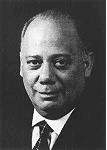 |
Jeffrey
GILDENHORN
for Mayor of DC
the candidate who means business
|
POSITION PAPER
ECONOMIC REVITALIZATION
The most important responsibility Congress has designated to the Mayor is economic
development. In the past, several plans by the Mayor, City Council and Control Board
have failed to materialize. Economic growth for the city must move forward if we are to
establish a tax base to provide superior services for Washington, D.C. without a
dependency on the U.S. Congress. The more vibrant the city becomes, the more likely we
will appeal to businesses and will attract new residents (families and singles) to move
into the city. Couple a stimulated economy with a strong public school system and a
respected police department, and you will have the necessary ingredients for Washington,
D.C. to truly be called-the Capital City.
I propose a three point economic revitalization plan, which I call “Creative
Economics.”
1. INVESTMENT TAX CREDIT.
Encourage retailers to move into the District by offering an investment tax credit equal
to the amount of sales tax they collect in their first year of business, provided that
the retailer signs a six (6) year lease (minimum) with their landlord The city uses
the first year tax credit as an incentive to encourage businesses to move to the District
that it might never have attracted; the city collects five years of taxes and sets aside
the first year to disburse over the course of the lease. Everyone benefits — the
landlord, the retailer, the consumer, and the government.
For example: A restaurant doing one million dollars in business the first year at 10%
sales tax could add $100,000 to its profit margin. The more businesses move into the
District, the more taxes are created, accompanied by the development of many new jobs.
2. 25% REDUCTION OF PERSONAL INCOME TAX.
I propose to rebate 25% of the taxes paid in by the D.C. taxpayer in the form of a
voucher, which must be spent on goods and services in the District of Columbia within the
same tax year (thus guaranteeing that the money remains in the city.) This proposal has a
pyramiding effect-generating a self-perpetuating economy. The vouchers collected by the
merchants would be redeemed by the D.C. government.
3. “BUY AND SELL” ECONOMICS.
There are areas in Washington, D.C. that have not been rebuilt since the riots of 1968.
Boarded-up businesses permeate the 14th Street, New York Avenue, New Jersey Avenue,
Bladensburg Road, and Chinatown to name a few. SOLUTION. Let the government buy the
properties and raze them (which will eliminate a blight to both residents and tourists);
then re-sell them to developers at bargain prices with a condition that the developer must
build within a specified period of time. The developer cannot "flip" the
property for a profit. He must return the property to the government if he doesn't
complete the arrangement. Additionally, the city should sell off currently owned
“unproductive” properties and consolidate office space it presently
occupies.
Telephone: 202-686-1999, FAX 202-363-1299, 5532 Connecticut Ave.,
N.W., Washington, D.C. 20015
Paid for by Citizens To Elect Jeffrey Gildenhorn Mayor, Donald Parker, Treasurer |
![]()